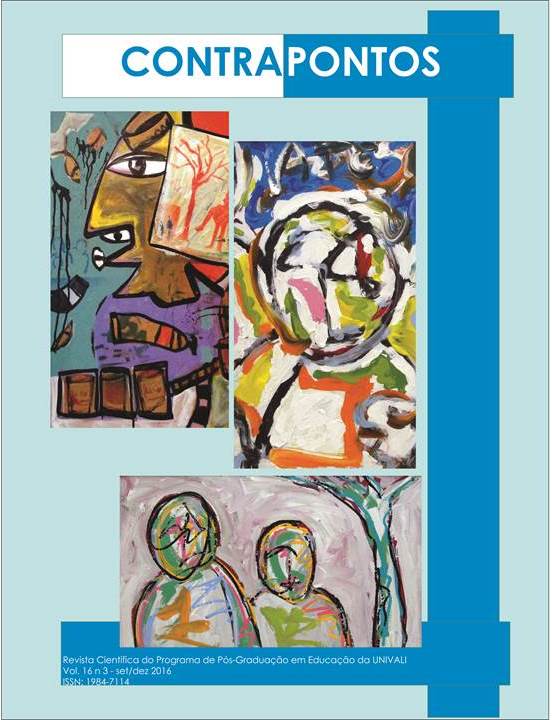UNDER THE DOME OF THE CONSTELLATIONS: ACTOR-NETWORK THEORY AND ASTRONOMY EDUCATION IN THE PLANETARIUM
DOI:
https://doi.org/10.14210/contrapontos.v16n3.p454-470Keywords:
Astronomy education, Actor-Network Theory, Planetarium.Abstract
The scope and magnitude of astronomy content stimulate the curiosity of children and adults, contribute to the production of knowledge, and can promote the development of interdisciplinary teaching practices. In this context, Planetariums offer various opportunities for the processes of teaching and learning in astronomy. The aim of this article is to analyze how teachers in the early years of elementary school view the Planetarium in their educational processes. For this, we used the theoretical and methodological framework of the Actor-Network Theory proposed by Bruno Latour (2012), especially from the concept of surfactant, which may be a human or non-human agent. Surfactants can take two distinct roles: mediator, when their actions/associations in the network promote changes, or intermediary, when the agent only transmits/reproduces the actions/existing associations, without modifying the networks and other surfactants. We sought to answer the guiding research question: In what situations do teachers view the Planetarium as mediator of the teaching and learning processes in astronomy, or as an intermediary in these processes? Initially, we conducted an analysis of the National Curriculum Parameters (PCN) on astronomy education. Next, we applied 97 questionnaires to teachers of different educational levels, who attended the Planetarium with their classes during 2014. The results indicate that teachers in the early years, acting in a planned and intentional way in teaching the astronomy content, perceive the Planetarium as a mediator, according to the Actor-Network Theory, as in these situations, the Planetarium - a non-human device – influences, modifies and organizes the educational activities and the learning of astronomy.
Downloads
Published
Issue
Section
License
Upon acceptance of an article, the author gives full rights of the work to Contrapontos., but retains the authorship. The published work is considered collaboration. Thus, its author will not get paid nor will s/he be charged by Contrapontos. The responsibility of the article solely goes to the authors. Citations and transcriptions are allowed by mentioning the sources.
Â

This work is licensed under a Creative Commons Attribution 4.0 International License.

